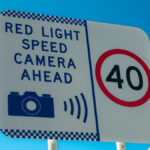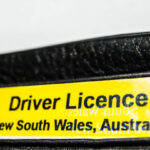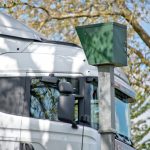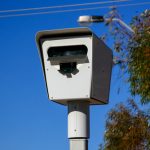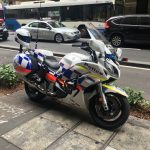Can I Check if I’ve Been Caught by a Speed Camera in New South Wales?
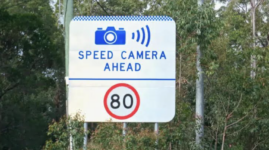
One of the more common internet searches relating to speeding offences is whether you can check if you’ve been caught by a speed camera.
The short answer is, you can’t. There is no way of checking online if you have been caught by a camera, and roads authorities have no obligation to provide you with this information – and they most likely won’t – if you give them a call.
And although there are several articles out there with clickbait titles such as, ‘How to check if you’ve been caught by a speed camera’ they will invariably have you reading most of the content before eventually telling you the same thing.
If you come across something more sinister which asks you to enter your details and/or pay money to check, beware, as it is a scam.
The unfortunate reality across all Australian states and territories is that you won’t be able to get rid of that uneasy feeling of not knowing whether you’ve run a speed camera until you actually receive the fine itself.
Options after receiving a speeding fine
If that occurs, you will have three options:
- Firstly, you can accept the fine and pay it by the due date. Remember that any late payments can attract additional ‘late fees’. If you can’t pay the fine, and you are experiencing financial hardship, you can contact the NSW Government and request a payment plan.
- Secondly, you can appeal the fine through the Revenue NSW review process. Section 24A of the Fines Act 1996 (NSW) allows drivers to request a review of their penalty notice. You can do this through the Revenue NSW website.
It’s important to note that you only have until the due date stated on the penalty notice to request a review. To be eligible to request a review, you must be able to provide supporting documentation that a mistake has been made, or there are exceptional circumstances that led to the offence.
To submit an application for review you need to provide:
-
- Proof of your identity, including your date of birth or driver’s licence number and your address
- Penalty notice number and date of the alleged office
- ‘Evidence’ and information to support your argument that a mistake was made, or the offience was committed under exceptional circumstances.
- Thirdly, you can elect (choose) to contest the matter in court. You can represent yourself in court, but It is always worthwhile discussing your options (and your planned defence!) with a a lawyer with experience in traffic infringements first, before you make a decision, because if a court finds you guilty of the offence it does have the power to impose a greater penalty.
Court election
If you decide to go to court, then you need to submit a court election form – available on the Revenue NSW website. The State Debt Recovery Office (SDRO) will send you a Court Attendance Notice (CAN) if you decide to go to court. The notice will provide information regarding the location and date of your hearing.
Some of the most common defences to speeding are:
- You were not the driver who committed the offence,
- There was an error issuing the infringement notice,
- That your speeding was an honest and reasonable mistake; in other words, you genuinely believed you were not breaking the speed limit and that belief was reasonable in all of the circumstances,
- Challenging the alleged speed as detected by a police radar, mobile camera or fixed roadside camera,
- You were speeding under duress or it was ‘necessary’ for you to be speeding.
Speeding offences
Speeding offences are the most frequently detected and fined traffic offences in New South Wales and, indeed, across the nation.
And research suggests that driving too fast is the single biggest contributor to death and injury on our state’s roads. Each year, speeding is said to be a contributing factor in 41% of all fatalities and 24% of all serious injuries on our roads.
In New South Wales, the seriousness of a speeding offence is characterised by the speed you were driving, in comparison to the designated speed limit in the area at the time.
Speeding offences which can directly result in a licence suspension include:
- driving more than 30km/h but not more than 45km/h above the speed limit (3 month suspension), and
- driving more than 45km/h above the speed limit (6 month suspension).
But its important to know there is a possibility of these suspensions being revoked altogether or significantly reduced by way of a driver licence appeal to a Local Court.
Demerit points suspensions
A driver or rider will receive a notice of suspension if he or she exceeds their allocated demerit points.
A driver’s or rider’s demerit point allocation will depend on the type of licence he or she holds.
A regular unrestricted licence holder reaches their limit at 13 demerit points, while a professional driver has 14.
A provisional P2 plater has 7 points, while a P1 plater and learner have 4 points.
It is important to see an expert traffic lawyer for advice as to whether your demerit point suspension can be appealed and, if so, your prospects of success.
Update: Viewing a Camera Image
The latest updates include drivers being able to view a camera image of their offence. If a driver has been named on a fine or overdue notice, they can view an online image of the offence captured by a mobile, seatbelt, bus lane, red light, or speed camera in New South Wales.
Drivers can view a camera image(s) of their offence online by inputting their fine notice number. The other way to view an image of the offence is to call 1300 138 118 and provide proof of identification.
The cameras capturing information on the roads include detailing the vehicle’s registration number, model, speed, lane, and image of the driver for mobile or seatbelt offences.
The types of cameras that can capture a speeding incident include one of the following:
- Fixed speed cameras — Detect the speed of a vehicle by using electronic sensors, typically positioned in high-risk areas.
- Mobile speed cameras — Moved to different locations within a vehicle.


